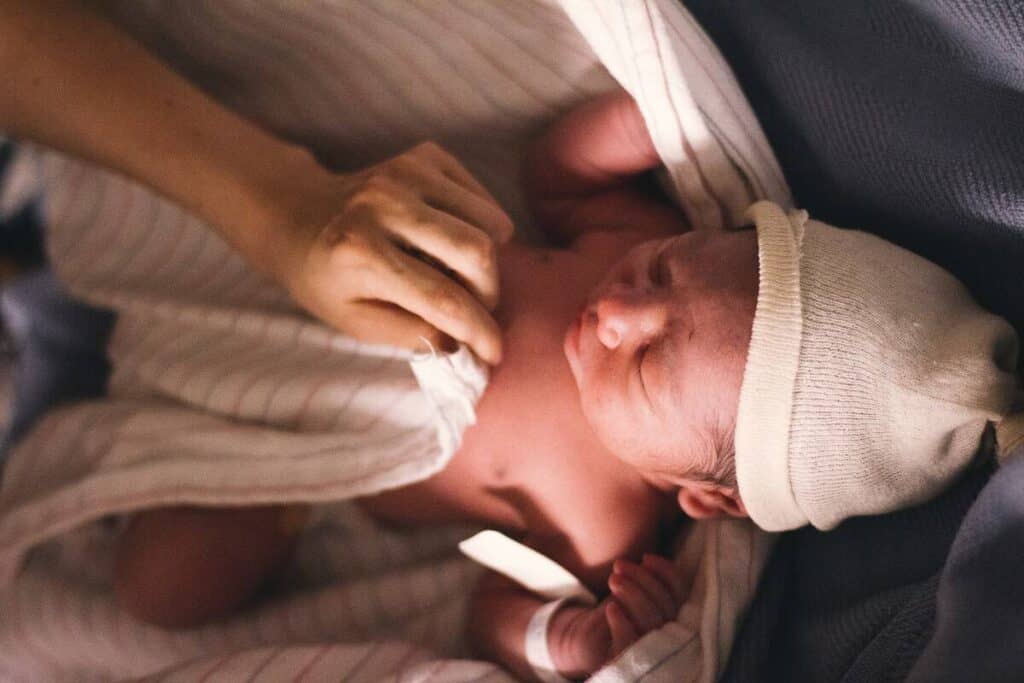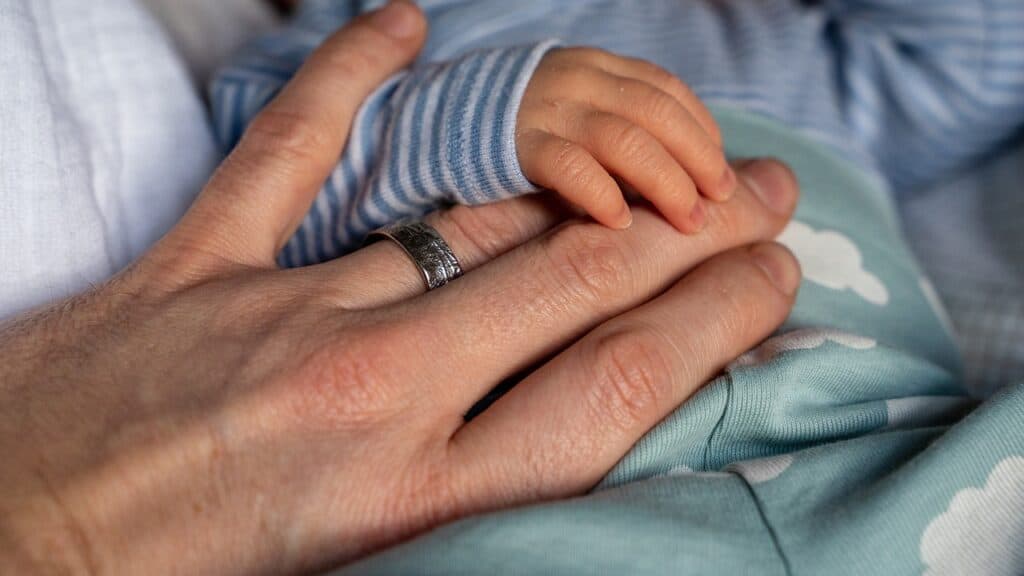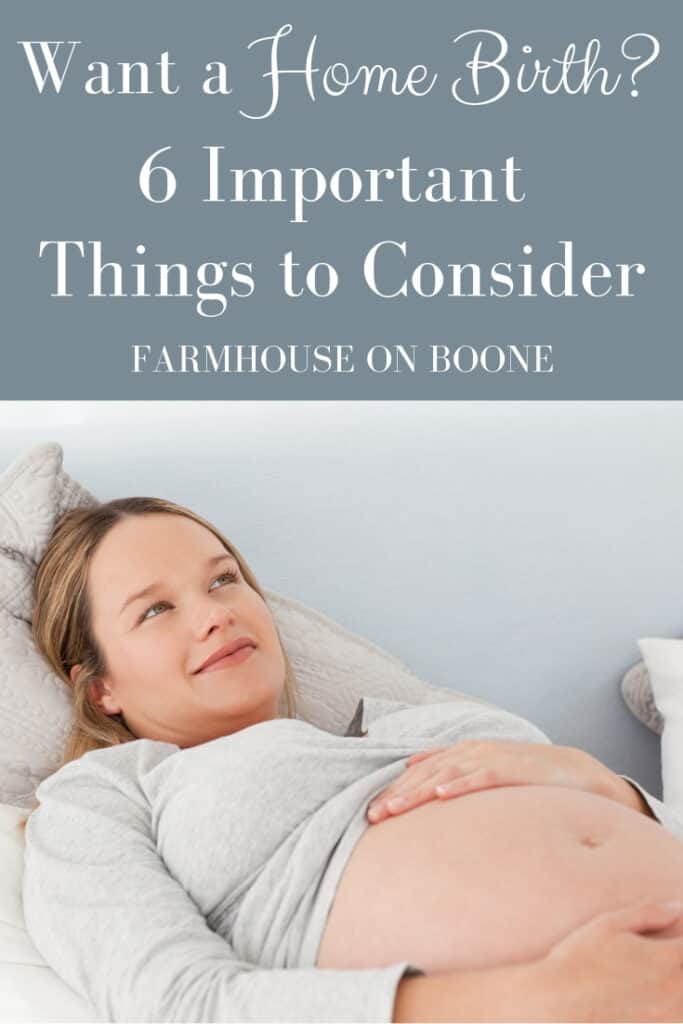Today I want to introduce you to Jenny Silverstone, a mama of 3, and author of the blog Mom Knows Best. She is going to share some home birth research that she has done, and things you should consider before having a home home birth. You all know I am as big proponent of home birth, and have had two myself. I am planning a third one this October! Let’s here what Jenny has to say.
Thinking About Home Birth? Here’s What You Should Know

Does the idea of a home birth seem much more appealing to you than being in the sterile setting of a hospital? Do you want the first thing your baby sees to be its new home?
Home birth is an appealing option to some moms, but they aren’t quite sure what it entails. If you are interested in diving into the world of home births, here are six essential steps you should keep in mind.
1. Be Objective
You’ll want your decision about whether to have a home birth to be based partly on facts, not just emotion. You’ll also want to look at the safety of it.
Home births do carry a slightly higher death rate for a baby. In hospital births that use a certified nurse midwife, the death rate of babies from birth to 27 days old is 3.2 out of 10,000. For a home birth with a certified nurse midwife, that death rate increases to 10 out of 10,000.
While that is a noticeable increase, both numbers are still small, and the more qualified and experienced your home birthing team is, the better your odds are.
By accepting that you may need a hospital birth in certain high-risk situations, you’ll also lower your odds of a poor outcome. Those circumstances include going past 41 weeks of your pregnancy, or having any complications develop later in pregnancy, such as gestational diabetes or high blood pressure.
2. Check Out Your Money Situation
Are you uninsured or underinsured? Then a home birth may save you money.
But if you have insurance, you should be aware you may end up paying more for a home birth. Although it is cheaper overall, your insurance company may not pick up the tab, or they only may cover certain aspects of your home birth, such as hiring a doula.
3. Select Your Team
If you’ve considered all you need to with safety, comfort, and finances and want to move ahead with a home birth, you need to find your midwife and a doula if you’d like one.
To find a certified nurse midwife, you need to play detective. Don’t just take someone’s word for something as important as your baby’s health. Find a midwife with a degree and one who is certified from the American Midwifery Certification Board.
A solid place to start is to ask your doctor if they know and recommend any midwives. If they don’t, you might be able to contact your local hospital and see if they have any recommendations.
4. Go Over What Is Covered
Ask your midwife who is going to provide the equipment that is needed. Find out what you’ll be expected to supply and make sure you get the materials well in advance so you are covered in case baby makes an early appearance.
Also, find out if your midwife is providing any aftercare, with visits in the week or two after your baby is born to see how you both are doing. Ask if she’ll help you with your lactation questions if you plan to breastfeed.
5. Come Up With An Emergency Plan
Before the big day, talk to your midwife and develop an emergency plan. That will spell out exactly when you’d like to head to the hospital if things start going south.
That may include things like your blood pressure climbing, your baby not being in the correct position, unusual vaginal bleeding, signs of distress on the fetal heart monitor, incomplete delivery of the placenta, or traces of meconium in the amniotic fluid.
In the meantime, make sure you keep doing all the suggested labs any woman should do during pregnancy. That will help you spot any potential problems that would rule out a home birth.

6. Get Ready For Baby
Once you’ve decided on a home birth, it will be up to you to prepare your home for the happy occasion. Although it may sometimes seem like pregnancy lasts forever, it will pass before you know it. So make sure you stay on top of all the tasks you have to do by writing a monthly list of goals.
That will help you stay on target. And you’ll be getting enough done that you won’t suddenly feel overwhelmed because you’ve procrastinated all of your checklists until the last month or two of pregnancy.

About the Author
Jenny Silverstone is the mother of two precious daughters, a writer for MomLovesBest.com, and a huge advocate for a more natural approach to parenting. Jenny is mildly obsessed with cloth diapering, babywearing, and breastfeeding. In her free time, Jenny enjoys spending time outdoors with her family and catching up on a good book.

Pin it for later


Aspen says
Hi Jenny and Lisa,
I love that y’all are promoting home birth and Jenny I appreciate you sharing all this information including how the death rate is slightly higher. I think education on home birth needs to be spread so that women feel more empowered to choose and so society realizes how safe and cost effective home birth can be.
I wanted a home birth with each of my pregnancies but my husband preferred it to take place in a hospital. My last pregnancy I had a home birth planned but that was quickly derailed when we found out we were having twins and my midwife told me she wouldn’t be able to attend a twin home birth. What can I say Illinois has some odd laws around home birth. We don’t plan on having any more but you can bet your biscuits if we do I’m having a home birth! I’m looking forward to checking out your blog Jenny. Lisa I hope you’re doing well.
-Aspen
Colleen says
I have mixed feelings about home birthing. As a mother whose last baby died after contracting Group B Strep during my labor, I know that emergency medical attention can make all the difference. After running a support group for 15 years for parents that lost a baby, I know how many things can go wrong REAL FAST. I also know parents whose babies died because of the terrible care they received in the hospital while in labor/delivery (including my own and is the reason my daughter died). If you ever watch the amazing documentary, The Business of Being Born, you will feel even more strongly about home births being safer as long as you have really good midwives involved but there are risks as well.
T.W. says
Almost 7 more babies (who passed away) out of 10,000 does seem like a small number, unless your baby was one of them!
ALLISON says
Congrats to you and baby #6!
I’m not sure where this author got her info on infant mortality (I’m not doubting you, I’m sure there are various studies that give varied results) but those numbers are much higher than the ones I found when researching my decision to have a home birth. In short, the infant mortality rates in the following studies are almost identical between planned home birth for low risk women with a certified professional/or nurse midwife and hospital birth. It’s not for everyone, certainly, but I wanted to offer studies that show little or no difference between mortality rates as the ones above are quite dramatic and possibly don’t give a complete summary of the research that has been done on this topic.
https://www.ncbi.nlm.nih.gov/pubmed/19720688
https://www.ncbi.nlm.nih.gov/pubmed/15961814
https://www.ncbi.nlm.nih.gov/pubmed/15674867
Happy birthing to all the mamas out there, no matter where you choose to birth!
Lisa says
Honestly Allison, I was surprised to read that too because I always thought home birth was safe or safer. I guess it depends on where you get your stats. Either way, the relative risk is something I am comfortable with. Thanks for sharing those other studies!
Kerry says
You should check the stats in countries that have socialized medicine. The US stats include women who could not afford prenatal care which is why the infant mortality is higher. In Canada home birth has the same outcomes as hospital. It’s the same same outcomes in Britian and Europe. My first three were homebirths and my fourth a transfer to the hospital before labour because of my midwife’s excellent prenatal care. There was no problem with me labouring in hospital with my midwife with an OB ready to assist if needed, based on my midwife’s well educated risk assessment.
Mark wood says
Hi!
Thanks for sharing!
Arabella says
Lisa, I completely agree with Allison. I’m glad she took the time to get the studies up here which I’ve been meaning to do since you first shared on this.
Congrats to you and the family on baby #6! You and I are due around the same time (#8).
Luna says
Hey, Lisa,
Is it possible to have an all-natural hospital birth? My husband is a considerable amount older than me (30 yrs), and we’ve decided to have the baby at a hospital, in case of a medical emergency.
Lisa says
Yes! Preparation is key! My sister had a natural hospital birth, and I had one with my second baby!